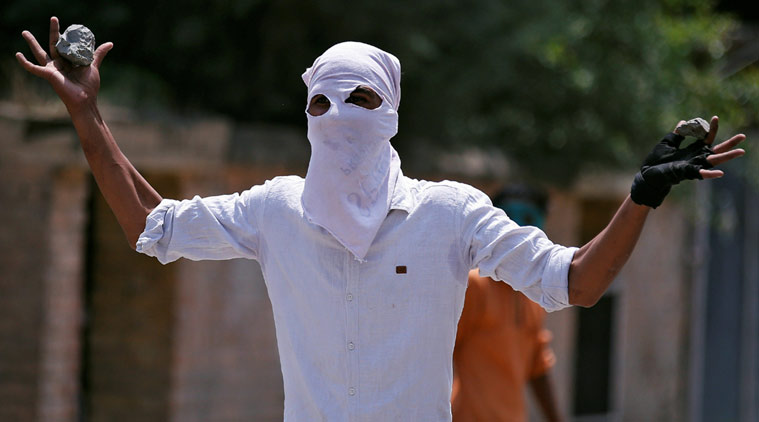In a first, Hurriyat Conference has named a police officer for “firing pellets on protesters” and called him a “butcher and criminal”.
 In what seems to be emerging as a new trend that spells grave personal danger for law enforcement officials in troubled Kashmir Valley, both separatist forces and locals in different areas have begun holding police officials personally responsible for deaths in the ongoing unrest and threatening them with dire consequences.
In what seems to be emerging as a new trend that spells grave personal danger for law enforcement officials in troubled Kashmir Valley, both separatist forces and locals in different areas have begun holding police officials personally responsible for deaths in the ongoing unrest and threatening them with dire consequences.
In a first, Hurriyat Conference has named a police officer for “firing pellets on protesters” and called him a “butcher and criminal”. The Hurriyat also warned him that they cannot help if people decide to take “action”.
Hours after several people were injured when police fired pellets to disperse protesters in Khanabal, the Syed Ali Shah Geelani-led Hurriyat Conference named an officer and said, “Without provocation, he resorted to pellet shelling, injuring dozens, including at least seven women, who sustained pellet injuries to her private parts. This criminal and butcher is warned that it is high time rogues and killers like him are brought to book. We cannot stop people (if they decide) to tackle you directly.” In the past, separatists have limited themselves to making general statements, asking the police to stop committing “excesses”.
In north Kashmir’s Sopore, unidentified people have scribbled a graffiti, warning Sopore SP Harmeet Singh after a civilian was killed and more than 140 injured — mostly by pellets — when police and paramilitary forces fired pellets on protesters in the town on Friday.
“Harmeet a warn(ing) for you. Your death is our mission,” reads a graffiti on a road near Super Bazar in the town. There are several other graffiti written on roads, warning other officers posted in the town.
In south Kashmir’s Kulgam, the house of a policeman associated with the Special Operations Group was set on fire by people a day after several people were killed in firing in the district. In Srinagar, a private car of a policeman was set on fire at Parimpora in the second week of July when he was stopped by protesters and asked to show his ID card.




